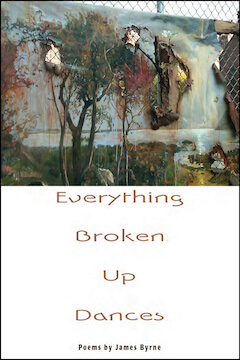Everyone Coming Toward You
by David Petruzelli
$19.95
These poems speak with a breezy candor and wit—reminiscent of Campbell McGrath’s own narrative work. The language is warm and highly accessible, the themes inviting (working for a Long Island escort service, having the great Jackson Pollock reach into his baby crib), and the stories are compelling. These are stories the guy sitting on the next bar stool might tell you, if the guy had a poet’s gift for language.
Format: paperback
The March – April, 2006 issue of the American Book Review reviews David Petruzelli’s Everyone Coming Toward You.
Everyone Coming Toward You (Tupelo Press, 2005) author David Petruzelli gives a fabulous interview at Mipoesias.
Poet Jenni Russell posted an enthusiastic review of Everyone Coming Toward You on her July 12th chanticleer blog (http://jenniandjack.blogspot.com).
Joanna Pearson reviewed Everyone Coming Toward You for Small Spiral Notebook.
Winner of the 4th Annual Tupelo Press First Book Judge’s Prize, selected by Campbell McGrath
These poems speak with a breezy candor and wit—reminiscent of Campbell McGrath’s own narrative work. The language is warm and highly accessible, the themes inviting (working for a Long Island escort service, having the great Jackson Pollock reach into his baby crib), and the stories are compelling. These are stories the guy sitting on the next bar stool might tell you, if the guy had a poet’s gift for language.
Additional information
| Weight | .4 lbs |
|---|---|
| Dimensions | 6 × .5 × 9 in |
Third Graders Waiting for Thunder
We grew quiet
when we heard it, or maybe
we were quiet already
and then we heard it,
but the unaccustomed dark
helped us bow our heads;
the classroom lights were welcome.
I think we grew quiet then
and began to concentrate,
as though this was September
and we would behave.
But the sound outside continued.
It was something we had to hear again.
Father Listens to the Artists
When I was eight months old, Jackson Pollock
stuck his hand in my crib and let me squeeze
one of his fingers. He was in my parents’ kitchen
in Hoboken, where we lived for three years;
he said the new linoleum reminded him
of one of his paintings. Every time my mother
tells the story, she always adds, “this is true”;
but my mother can’t tell stories.
And my father has stopped remembering.
What never changes is my hand touching Pollock’s
and who was watching; my parents and my father’s
best friend from childhood—Nick Carone,
a painter who had brought along his famous pal
partly to show off, partly in the hope
Pollock would notice that the work my parents
loyally hung in our living room was Nick’s.
But all Pollock cared about, my mother says,
was how much beer was left, how much money
Nick could con my father into giving them,
until the bottles on the table clinked happily
and the artists looked at each other
like lovers who had forgotten our world.
Then Nick placed his hands on my father’s shoulders,
Pollock called over to my mother,
who had gone to my crib. Without looking up
she broke her train of baby talk to say goodbye,
but watched my father follow them out
into the hall and stand at the top of the stairs,
waiting as both men began the long walk down.
It’s at this point my mother always stops to ask,
Do I remember we lived on the fifth floor?
And by now I’ve learned to answer, yes I do.
Her Every No
Maybe it’s easier to buy new clothes
rather than wash the old,
to let her boyfriend entertain himself
while she dozes on the couch all afternoon,
and now he wanders through each room,
pausing to view the cartons of old take-outs
and retrieve her underwear — all yellows
and pale blues — folding them, starting to remember.
Afterwards he sits down with that book
on ballet — once a favorite of hers
and now, it seems, of his, if only
for the black & white photos of young girls
or the endpapers marbled by hand in Paris,
and which he touches now
as if nothing found on her floor could compare.
But at five he says, “I’ll call you later,”
and even though he’s standing over her
she’ll remember his voice
as coming from the hall; her eyes closing
forgo the door’s rough kiss. She touches her face,
remembers the feel of his hand,
and that earlier she said please come over;
that she had really said please;
that he brushed one cheek as if checking for dust.






